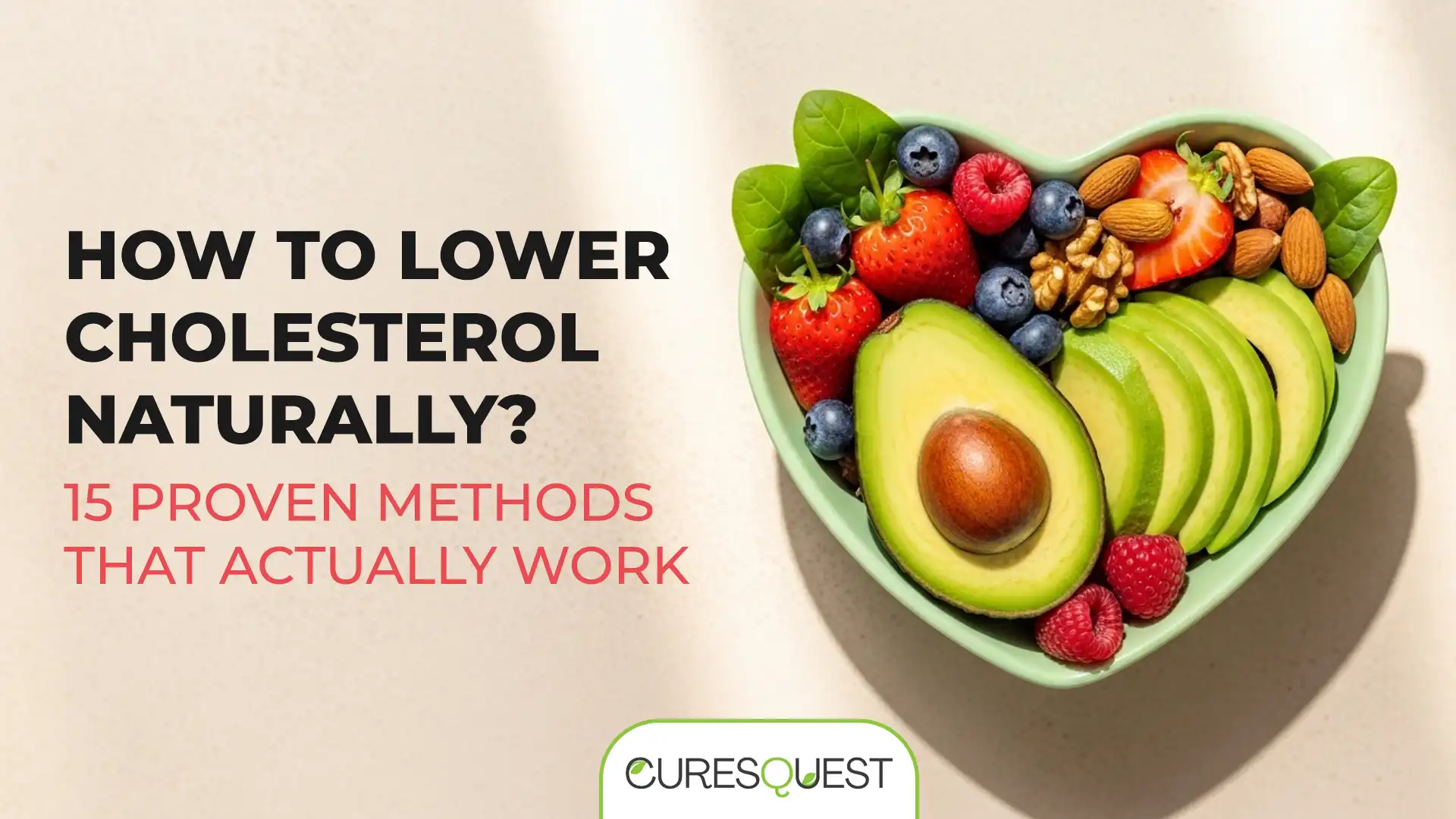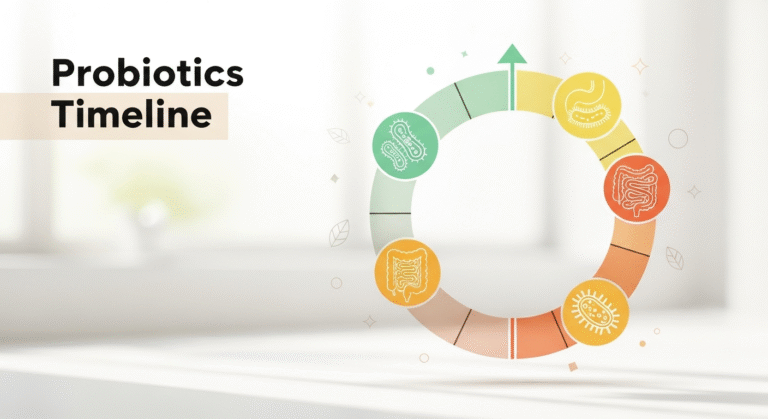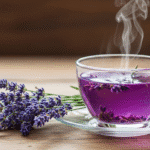Book Appointment Now

How to Lower Cholesterol Naturally? 15 Proven Methods That Actually Work
If you’re wondering how to lower cholesterol naturally, you’re not alone. Millions of people worldwide are seeking effective, medication-free approaches to manage their cholesterol levels and improve heart health. High cholesterol affects nearly 40% of adults, making it one of the most common health concerns of our time. The good news? You have more control over your cholesterol levels than you might think.
Think of cholesterol like traffic in your bloodstream. When there’s too much “bad traffic” (LDL cholesterol) and not enough “good traffic controllers” (HDL cholesterol), congestion builds up in your arteries. This natural approach to cholesterol management acts like installing better traffic signals, creating express lanes, and reducing overall congestion – all without pharmaceutical intervention.
Table of Contents
Table of Contents
Understanding Cholesterol: The Basics
Before diving into how to lower cholesterol naturally, it’s crucial to understand what cholesterol actually is and why it matters. Cholesterol isn’t inherently evil – your body needs it to build healthy cells, produce hormones, and create bile acids for digestion.
The problem arises when you have too much of the wrong type. According to the American Heart Association, there are several types of cholesterol:
- LDL (Low-Density Lipoprotein): Often called “bad” cholesterol, it can build up in artery walls
- HDL (High-Density Lipoprotein): The “good” cholesterol that helps remove LDL from arteries
- Total Cholesterol: The sum of all cholesterol types in your blood
- Triglycerides: Another type of blood fat that affects heart health
Optimal Cholesterol Levels
Understanding target numbers helps you track progress when learning how to lower cholesterol naturally. Mayo Clinic guidelines suggest:
| Cholesterol Type | Optimal Level | Borderline/High |
|---|---|---|
| Total Cholesterol | Less than 200 mg/dL | 200-239 mg/dL |
| LDL Cholesterol | Less than 100 mg/dL | 130-159 mg/dL |
| HDL Cholesterol | 40+ mg/dL (men), 50+ mg/dL (women) | Below these levels |
| Triglycerides | Less than 150 mg/dL | 150-199 mg/dL |
15 Dietary Changes to Lower Cholesterol Naturally
Diet plays the starring role when it comes to natural cholesterol reduction. What you eat directly impacts your cholesterol production and absorption. Here are the most effective dietary strategies:
1. Embrace Soluble Fiber-Rich Foods
Soluble fiber acts like a sponge in your digestive system, soaking up cholesterol before it enters your bloodstream. Research from Healthline shows that consuming 5-10 grams of soluble fiber daily can reduce LDL cholesterol by 5%.
Top soluble fiber sources include:
- Oatmeal and oat bran (3 grams per cup)
- Beans and lentils (6-7 grams per cup)
- Apples with skin (4 grams per medium apple)
- Barley (3 grams per half cup)
- Brussels sprouts (2 grams per half cup)
2. Load Up on Heart-Healthy Nuts
Nuts are nutritional powerhouses for anyone learning how to lower cholesterol naturally. A handful of nuts daily (about 1.5 ounces) can reduce LDL cholesterol by 5%. The key is moderation – nuts are calorie-dense.
Best nuts for cholesterol reduction:
- Almonds: Rich in vitamin E and monounsaturated fats
- Walnuts: Loaded with omega-3 fatty acids
- Pistachios: High in plant sterols
- Pecans: Contain beneficial antioxidants
3. Choose Fatty Fish Over Red Meat
Swapping red meat for fatty fish twice weekly is a game-changer for natural cholesterol reduction. Fish provides omega-3 fatty acids that reduce inflammation and triglycerides while boosting HDL cholesterol.
Best fish choices include:
- Salmon (wild-caught preferred)
- Mackerel
- Sardines
- Herring
- Tuna (limit due to mercury)
Simple Fish Preparation Tips
Worried about cooking fish? Start simple. Bake salmon at 400°F for 12-15 minutes, season with lemon and herbs. Even canned sardines on whole grain toast make an excellent cholesterol-lowering meal.
4. Incorporate Plant Sterols and Stanols
Plant sterols and stanols are natural compounds that block cholesterol absorption. WebMD research indicates consuming 2 grams daily can reduce LDL cholesterol by 6-15%.
Natural sources include:
- Fortified orange juice and yogurt
- Vegetable oils (especially corn oil)
- Nuts and seeds
- Whole grains
- Legumes
5. Add Avocados to Your Diet
Avocados are rich in monounsaturated fats that help lower cholesterol naturally. One study found eating one avocado daily reduced LDL cholesterol by 13.5 mg/dL in overweight individuals.
Try adding half an avocado to salads, smoothies, or whole grain toast. The creamy texture makes it an excellent replacement for butter or mayonnaise.
6. Choose Whole Grains Over Refined Carbs
Whole grains provide fiber, vitamins, and minerals that support natural cholesterol reduction. The fiber content helps bind cholesterol in the digestive tract, preventing absorption.
Best whole grain choices:
- Steel-cut oats
- Quinoa
- Brown rice
- Whole wheat bread
- Bulgur wheat
7. Embrace Colorful Fruits and Vegetables
Fruits and vegetables are naturally cholesterol-free and packed with antioxidants that protect against heart disease. Aim for 5-9 servings daily, focusing on variety and color.
Particularly beneficial options include:
- Berries (blueberries, strawberries, blackberries)
- Citrus fruits (oranges, grapefruits)
- Leafy greens (spinach, kale, arugula)
- Cruciferous vegetables (broccoli, cauliflower)
- Purple vegetables (eggplant, purple cabbage)
8. Limit Saturated and Trans Fats
When learning how to lower cholesterol naturally, reducing harmful fats is as important as adding beneficial ones. Saturated fats raise LDL cholesterol, while trans fats are even worse.
Foods to limit or avoid:
- Fatty cuts of red meat
- Full-fat dairy products
- Processed foods with trans fats
- Fried foods
- Commercial baked goods
9. Try Green Tea
Green tea contains catechins, powerful antioxidants that help lower cholesterol naturally. Studies published in the National Center for Biotechnology Information show drinking 2-3 cups daily can reduce LDL cholesterol.
Replace one cup of coffee with green tea, or enjoy it as an afternoon beverage. Add lemon for extra vitamin C and flavor.
10. Include Beans and Legumes Regularly
Beans are cholesterol-lowering superstars. They’re rich in soluble fiber, plant protein, and folate. Eating half a cup of beans daily can reduce cholesterol by 8%.
Easy ways to add beans:
- Add chickpeas to salads
- Make three-bean chili
- Use black beans in Mexican dishes
- Try lentil soup
- Snack on roasted chickpeas
11. Choose Lean Protein Sources
Protein is essential, but choosing the right sources matters for natural cholesterol reduction. Focus on lean options that don’t raise cholesterol levels.
Best protein choices:
- Skinless poultry
- Fish and seafood
- Egg whites
- Plant proteins (tofu, tempeh)
- Low-fat dairy products
12. Add Dark Chocolate (In Moderation)
Good news for chocolate lovers! Dark chocolate with at least 70% cocoa contains flavonoids that may help lower cholesterol naturally. Limit to 1 ounce (28 grams) daily.
13. Use Olive Oil as Primary Fat
Extra virgin olive oil is rich in monounsaturated fats and antioxidants. Use it for cooking, salad dressings, and as a replacement for butter or margarine.
14. Increase Garlic and Onion Intake
Garlic contains allicin, a compound that may help reduce cholesterol production. Add fresh garlic and onions to meals regularly for both flavor and health benefits.
15. Try Apple Cider Vinegar
While research is limited, some studies suggest apple cider vinegar may help lower cholesterol naturally. Try 1-2 tablespoons diluted in water before meals.
Lifestyle Modifications for Natural Cholesterol Reduction
Diet alone isn’t the complete answer to how to lower cholesterol naturally. Lifestyle factors play equally important roles in cholesterol management.
Quit Smoking
Smoking damages blood vessels and lowers HDL cholesterol. According to the CDC, quitting smoking can improve HDL levels within weeks.
If you smoke, consider this your most important step in natural cholesterol management. Seek support through quitlines, apps, or healthcare providers.
Maintain a Healthy Weight
Excess weight contributes to high cholesterol. Losing even 5-10 pounds can significantly improve cholesterol levels. Focus on gradual, sustainable weight loss through diet and exercise.
Limit Alcohol Consumption
While moderate alcohol consumption (especially red wine) may raise HDL cholesterol, excessive drinking has negative effects. Stick to recommended guidelines: one drink daily for women, two for men.
Exercise and Physical Activity
Regular exercise is one of the most effective ways to lower cholesterol naturally. Physical activity not only reduces LDL cholesterol but also boosts HDL levels – a double win for heart health.
Aerobic Exercise
Aim for at least 150 minutes of moderate-intensity aerobic activity weekly, or 75 minutes of vigorous activity. American Heart Association guidelines recommend:
- Brisk walking (30 minutes, 5 days weekly)
- Swimming
- Cycling
- Dancing
- Hiking
Strength Training
Add resistance exercises twice weekly. Muscle-building activities improve overall metabolism and contribute to natural cholesterol reduction.
Simple Home Exercises
No gym membership? No problem. Try these equipment-free exercises:
- Push-ups (modified if needed)
- Squats
- Lunges
- Planks
- Step-ups using stairs
Start Small and Build Gradually
If you’re new to exercise, start with 10-15 minutes daily and gradually increase. Consistency matters more than intensity when learning how to lower cholesterol naturally.
Natural Supplements and Herbs
While whole foods should be your primary focus, certain supplements may support natural cholesterol reduction. Always consult your healthcare provider before starting new supplements.
Fish Oil Supplements
If you don’t eat fish regularly, fish oil supplements provide omega-3 fatty acids. Look for products with EPA and DHA, and choose reputable brands tested for purity.
Psyllium Husk
This soluble fiber supplement can help lower cholesterol naturally. Start with small doses to avoid digestive upset, and drink plenty of water.
Red Yeast Rice
Research from the National Center for Complementary and Integrative Health shows red yeast rice may reduce cholesterol, but it contains compounds similar to statin drugs. Use only under medical supervision.
Bergamot
Bergamot extract shows promise for cholesterol reduction. Some studies indicate it may lower LDL while raising HDL levels.
Artichoke Leaf Extract
Traditional medicine has long used artichoke for heart health. Modern studies suggest it may help with cholesterol management.
Stress Management Techniques
Chronic stress can indirectly affect cholesterol by triggering unhealthy behaviors like overeating or smoking. Learning to manage stress is crucial for natural cholesterol reduction.
Meditation and Mindfulness
Just 10-15 minutes of daily meditation can reduce stress hormones that contribute to cholesterol problems. Try apps like Headspace or Calm to get started.
Deep Breathing Exercises
Simple breathing techniques can quickly reduce stress. Try the 4-7-8 technique: inhale for 4 counts, hold for 7, exhale for 8.
Regular Sleep Schedule
Poor sleep affects hormones that regulate cholesterol. Aim for 7-9 hours nightly and maintain consistent sleep/wake times.
Social Connections
Strong relationships and social support contribute to better health outcomes. Make time for friends and family, or consider joining community groups.
Monitoring Your Progress
Tracking your progress helps maintain motivation and allows adjustments to your natural cholesterol reduction plan.
Regular Blood Tests
Get cholesterol levels checked every 6-12 months, or as recommended by your healthcare provider. Keep a record of results to track trends.
Food Diary
Track what you eat for at least a week monthly. This helps identify patterns and areas for improvement in your diet.
Exercise Log
Record physical activity to ensure you’re meeting weekly targets. Many smartphone apps make this easy.
Weight and Body Measurements
Monitor weight and waist circumference monthly. These metrics often correlate with cholesterol improvements.
When to See a Doctor
While learning how to lower cholesterol naturally is valuable, some situations require medical intervention.
Consider Medical Help If:
- Total cholesterol exceeds 240 mg/dL
- LDL cholesterol is above 160 mg/dL
- You have family history of early heart disease
- Natural methods don’t improve levels after 3-6 months
- You have additional risk factors (diabetes, high blood pressure)
Working with Healthcare Providers
Your doctor can help create a comprehensive plan combining natural approaches with medical treatment if needed. Be honest about your natural cholesterol reduction efforts – many providers appreciate proactive patients.
Creating Your Personal Action Plan
Successfully implementing how to lower cholesterol naturally requires a personalized approach. Here’s how to create your action plan:
Week 1-2: Assessment and Planning
- Get baseline cholesterol levels tested
- Assess current diet and exercise habits
- Set realistic, specific goals
- Stock kitchen with cholesterol-friendly foods
Week 3-6: Implementation Phase
- Add one new heart-healthy food weekly
- Start with 15-20 minutes of daily exercise
- Practice stress management techniques
- Track progress in a journal
Month 2-3: Optimization and Habit Formation
- Increase exercise duration and intensity
- Experiment with new healthy recipes
- Address any challenges or obstacles
- Build sustainable routines
Month 3+: Long-term Maintenance
- Recheck cholesterol levels
- Adjust plan based on results
- Focus on lifestyle maintenance
- Celebrate progress and successes
Common Mistakes to Avoid
When learning natural cholesterol reduction, avoid these common pitfalls:
All-or-Nothing Thinking
Small, consistent changes are more effective than dramatic overhauls that aren’t sustainable. Progress, not perfection, is the goal.
Ignoring Portion Sizes
Even healthy foods can contribute to weight gain if portions are too large. Pay attention to serving sizes, especially with nuts and oils.
Focusing Only on Diet
Exercise, stress management, and sleep quality are equally important for cholesterol management. Address all aspects of lifestyle.
Expecting Immediate Results
Natural cholesterol reduction takes time – typically 6-12 weeks to see significant changes. Be patient and consistent.
The Science Behind Natural Cholesterol Reduction
Understanding the mechanisms helps explain why natural approaches work for cholesterol management.
Dietary Fiber’s Role
Soluble fiber binds bile acids in the intestine, forcing the liver to use cholesterol to make new bile acids. This process naturally reduces cholesterol levels.
Exercise Benefits
Physical activity increases HDL cholesterol by stimulating enzymes that transport cholesterol from artery walls to the liver for disposal.
Plant Sterols Mechanism
These compounds compete with cholesterol for absorption in the intestines, effectively blocking some cholesterol from entering the bloodstream.
Success Stories and Motivation
Many people have successfully learned how to lower cholesterol naturally. While individual results vary, consistency with natural approaches often yields impressive results.
Remember Sarah, a 52-year-old teacher who reduced her total cholesterol from 260 to 195 mg/dL in six months through diet changes and daily walks. Or Mark, who lowered his LDL from 180 to 125 mg/dL by adding oatmeal, fish, and beans to his regular routine.
Your journey with natural cholesterol reduction is unique, but you’re not alone. Millions of people have successfully improved their cholesterol levels through natural methods.
Conclusion: Your Path to Better Heart Health
Learning how to lower cholesterol naturally empowers you to take control of your heart health through evidence-based lifestyle changes. The 15 dietary strategies, exercise recommendations, and lifestyle modifications outlined in this guide provide a comprehensive approach to natural cholesterol management.
Remember, natural cholesterol reduction is a marathon, not a sprint. Start with small changes that feel manageable, build sustainable habits, and be patient with the process. Your heart – and your future self – will thank you for the investment in natural health approaches.
The combination of soluble fiber-rich foods, regular exercise, stress management, and healthy lifestyle choices creates a powerful foundation for natural cholesterol reduction. While medication may be necessary for some people, these natural approaches can often significantly improve cholesterol levels and overall cardiovascular health.
Take the first step today by choosing one or two strategies from this guide. Your journey to better heart health through natural methods starts now.





